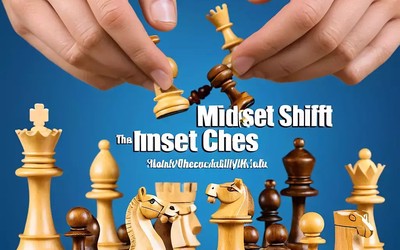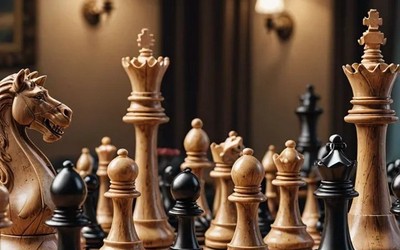
Real-Life Chess Success Stories
Real-Life Chess Success StoriesImproving your chess isn't mandatory, and I totally get it if you're all about the fun and don't mind a plateau. But what irks me is when folks throw in the towel, claiming they're "too old" or "not cut out for it." That's just plain wrong. I've seen it all—kids as young as six and seasoned players in their seventies—who've busted through their perceived limits.
The secret sauce? Motivation, time, and doing things the right way. It's not about overnight miracles, but steady progress. Sure, I can't tell you how much or when you'll improve, but with dedication, it's inevitable. And trust me, those skills will start shining through in your games, leading to better scores and ratings.
In this blog, I'll share stories of students who defied the odds, achieving impressive growth without being chess whizzes. They just tweaked their approach, put in consistent effort, and voila—results followed.
Take Williams, for instance. A 25-year-old grad student juggling a PhD in USA. He'd been stuck in the 2000-2100 rating zone for six long years, dabbling in openings without a solid study routine. But when he joined us, he made every minute count.
In just two weeks, he wrapped up our course and dove into a simple yet effective routine:
- 2 hours on tactics using the Woodpecker Method
- 2 hours analyzing his OTB games
- 2 hours brushing up on openings
And whenever he could, he squeezed in weekend tournaments. After his first one post-joining, he said, "Even though I 'only' finished at my initial ranking last weekend, behind the different titled players, I enjoyed that tournament way more and felt less bad emotions in the end!"
That's the power of the right approach. So, whether you're a seasoned player or just starting out, there's always room to grow. It's not about age or innate talent—it's about mindset and method.
In May, he hit a personal best rating of 2150, and by September, he was taking on IMs and scoring 2.5 out of 3 games, with a performance rating of 2445—around 400 points higher than when he first joined just 10 months earlier!
Williams, if you're reading this, hats off to you, buddy! Your journey is a beacon of inspiration for me and countless NLT students. Who knows where it'll lead? As you've mentioned, maybe snagging that FM title, or heck, even aiming for IM status down the road?
Be Like Williams If you're strapped for time, stuck in a rut, and haven't really given chess your all, take heart—you're in the same boat as Jerome.
Here's the deal:
Good news: You can still improve, even with less than 10 hours of training each week. Bad news: No more excuses!
"But I'm way older than Williams," you might protest.
Here's the scoop on boosting your chess game, distilled into seven power-packed tips:
- Clean Slate: Kick off your improvement journey by ditching old habits. Think of it as a chess detox—take a break from all things chess-related for a rejuvenating 7-day cleanse. Share your detox tales with me! What was the toughest part?
- Mind Matters: Adopt the right mindset. Instead of obsessing over your rating, shift your focus to honing your skills. Set goals like mastering time management or solving a set number of puzzles daily, rather than fixating on numbers.
- Embrace Discomfort: Growth happens outside your comfort zone. Challenge yourself with puzzles slightly above your skill level. If you're getting around two-thirds of them right, you're hitting the sweet spot.
- Smart Training: Don't spin your wheels. Use the 1/3 rule to focus on what truly impacts your game—less time on openings, more on tactics and game analysis.
- Consistency is Key: Set up a training plan and stick to it like glue. Start small, then gradually ramp up. Remember, it's a marathon, not a sprint.
- Roll with the Punches: Life's curveballs are inevitable. Anticipate obstacles and have backup plans in place. If you fall off the wagon, don't sweat it. Start small to get back into the groove, then build up momentum again.
- Believe and Achieve: Trust in your potential. Patience and perseverance are your allies. Put in the hard yards, and results will follow. Celebrate each milestone along the way—you're not just improving your chess game, you're honing life skills too.
So, let's make this your winning year. Your journey starts now, and who knows? Your success story could inspire others in the future.
Now, it's your move. Time to take action!
More blog posts by Skypelesson99

Thoughts during a chess match
Thoughts during a chess match
Transform Chess with Mindset Mastery
Transform Chess with Mindset Mastery
Selecting the Best Chess Tournament Category
Selecting the Best Chess Tournament Category